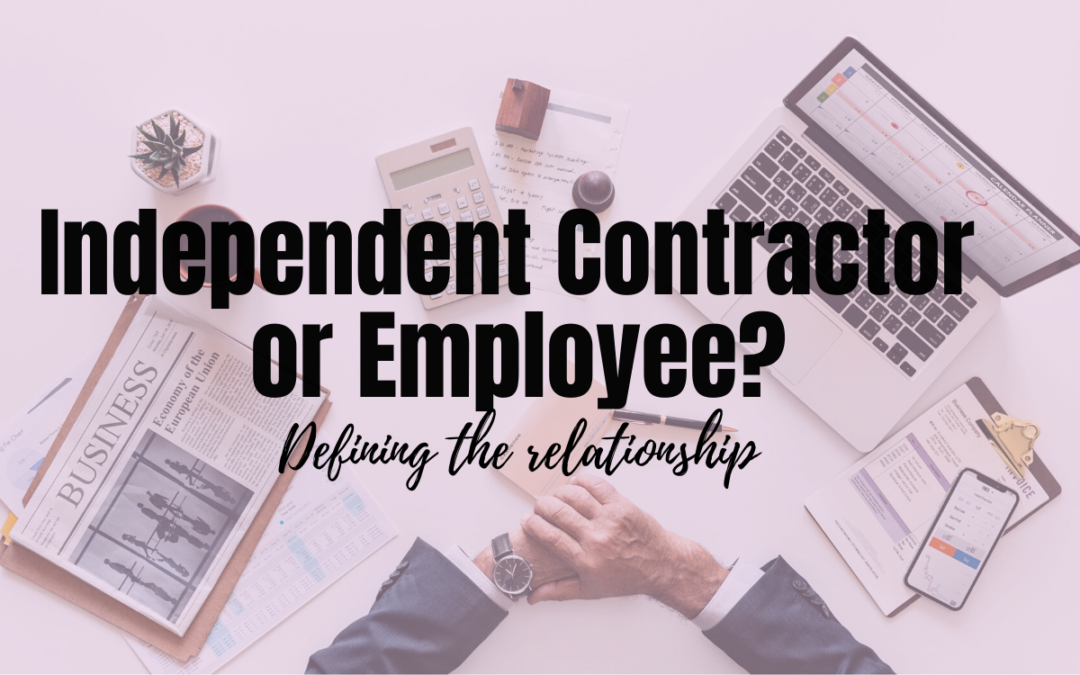The tax season is only a few short months away! For all of #teamNortonNational (that’s you guys!), this means getting your life organized and filling out all those pesky forms. Before you start hiking up that mountain of paperwork, let’s chat about what an independent contractor is. You might think you know, but the truth is, different groups have different definitions! Let’s tackle the IRS first…
IRS
The IRS, despite seeming to be the most complicated institution in the world, has pretty clear guidelines on this subject (I know, shocker!). They look at the worker and ask three questions:
How much control do you have over your behavior?
If you create your own schedule, follow your own procedures, or evaluate your own work, you’re probably an independent contractor by these standards. Employees usually have a consistent schedule created by an employer and are following company policies and procedures.
What financial commitments do you and the employer have to each other?
An employer might reimburse expenses, such as business travel, for an employee. An independent contractor typically purchases their own supplies and tools and receives no benefits from the employer, unless pre-provided in the agreement to help make the arrangement look attractive (i.e. including your parking!).
What type of relationship exists between you and the employer?
As an independent contractor, you do not necessarily expect your relationship with your employer to be indefinite. Usually, once the job is completed, the working relationship ends until services are required again. For an employee, when a company hires them, they assume the relationship to be indefinite with no set end date.
These questions give them an idea of if the worker should be classified as an independent contractor or not. You’re probably an employee if your employer has a lot of control over you, a regular paycheck for you, and the relationship is intended to be indefinite (e.g. not a “one-and-done” job).
State Laws
Just like every state has it’s own flower and flag, they also have their own laws about independent contractors. Unfortunately, there’s not a perfect split to say the west coast does it one way and the east coast does it another. Every state has tests to figure out the working relationship in questions. Here are a few of the more common tests:
- ABC Test – The ABC test lays out three factors that are true, determine that a worker is an independent contractor. To be considered an IC in states that follow this test you must be free from control and direction in how you perform a task, the service must be performed outside the usual business of the employer, and you must be engaged in an independently established industry that aligns with the service performed.
- Right of Control – For the states that use this test, the most important factor is how much control the employer has. This doesn’t just to apply to what the worker is doing, but also how they are doing it. The more control an employer has, the more likely the worker is an employee.
Want to know your state’s laws? Check out this handy guide from the National Association of Home Builders that gives you a thorough description for each state. Be sure to check that guide out here.
Fair Labor Standards Act
The Department of Labor (DOL) has its own way of distinguishing between employees and independent contractors. While they may look similar to the federal and state guidelines, the Fair Labor Standards Act has slightly more specific questions:
- “The extent to which the services rendered are an integral part of the principal’s business.
- The permanency of the relationship.
- The amount of the alleged contractor’s investment in facilities and equipment.
- The nature and degree of control by the principal.
- The alleged contractor’s opportunities for profit and loss.
- The amount of initiative, judgment, or foresight in open market competition with others required for the success of the claimed independent contractor.
- The degree of independent business organization and operation.” – Department of Labor
Want more information? Check out the DOL’s website here!
Maybe you have realized this…. But a lot of these rules and questions overlap! Figuring out how to classify yourself comes down to how independent you are from the person who is hiring you (no wonder it’s called an ‘independent contractor’!).
We hope you all enjoyed this blog and found some helpful information!



Recent Comments